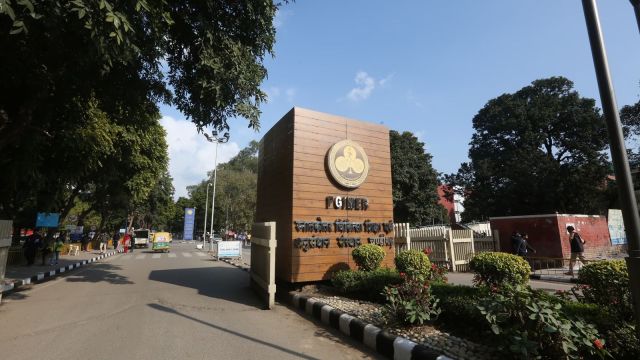323 PGI staff houses lie vacant, causing Rs 5.5 crore annual loss
RTI reveals many unallotted homes locked since 2017 even as employees face high rents and long commutes
 While PGI suffers rental losses running into several lakh rupees annually, it continues to incur expenses on the upkeep and security of these properties. (file photo)
While PGI suffers rental losses running into several lakh rupees annually, it continues to incur expenses on the upkeep and security of these properties. (file photo)As many as 323 houses meant for faculty and non-faculty staff of the Post Graduate Institute of Medical Education and Research (PGI) in Sectors 12 and 24 have been lying vacant for years, causing an annual financial loss of around Rs 5.5 crore, information obtained under the Right to Information (RTI) Act has revealed.
According to the RTI reply, the losses are on account of forgone licence fees and the payment of 20% house rent allowance (HRA) to staff who could have been accommodated in these quarters. Over the last five to six years, the non-allotment of vacant houses has cost PGI more than Rs 20 crore.
Applicant Ashwani Kumar Munjal, an honorary member of the PGI Employees’ Union (Non-Faculty), said many of these houses have remained unoccupied from 2017 to 2025, even as several employees wait for official accommodation. “Staff have to rent homes in far-off areas at high rates. This puts a heavy financial burden on them and delays their arrival for duty due to traffic congestion, ultimately affecting patient services,” he said.
The RTI reply also shows that many of these houses have been locked up for years, rendering them uninhabitable. While PGI suffers rental losses running into several lakh rupees annually, it continues to incur expenses on the upkeep and security of these properties.
Residential accommodation at PGI is primarily meant for faculty, resident doctors, nurses, and other staff. However, due to various reasons — from long-pending repairs to unsuitable location or size — 323 houses remain unallotted. A recent ‘fitness report’ of the vacant quarters flagged severe issues, including wall cracks, leaking roofs, faulty sewage and plumbing systems, unsafe electrical wiring, and dilapidated doors and windows.
These problems have delayed allotment and driven up annual maintenance costs. Meanwhile, demand for on-campus housing remains high, with new doctors and employees often forced to rent costly accommodation outside.
Staff representatives say timely repair and maintenance could prevent further financial losses and ease the housing crunch. Proposals under consideration include earmarking a separate repair budget and launching large-scale renovations to bring the locked quarters back into use.







